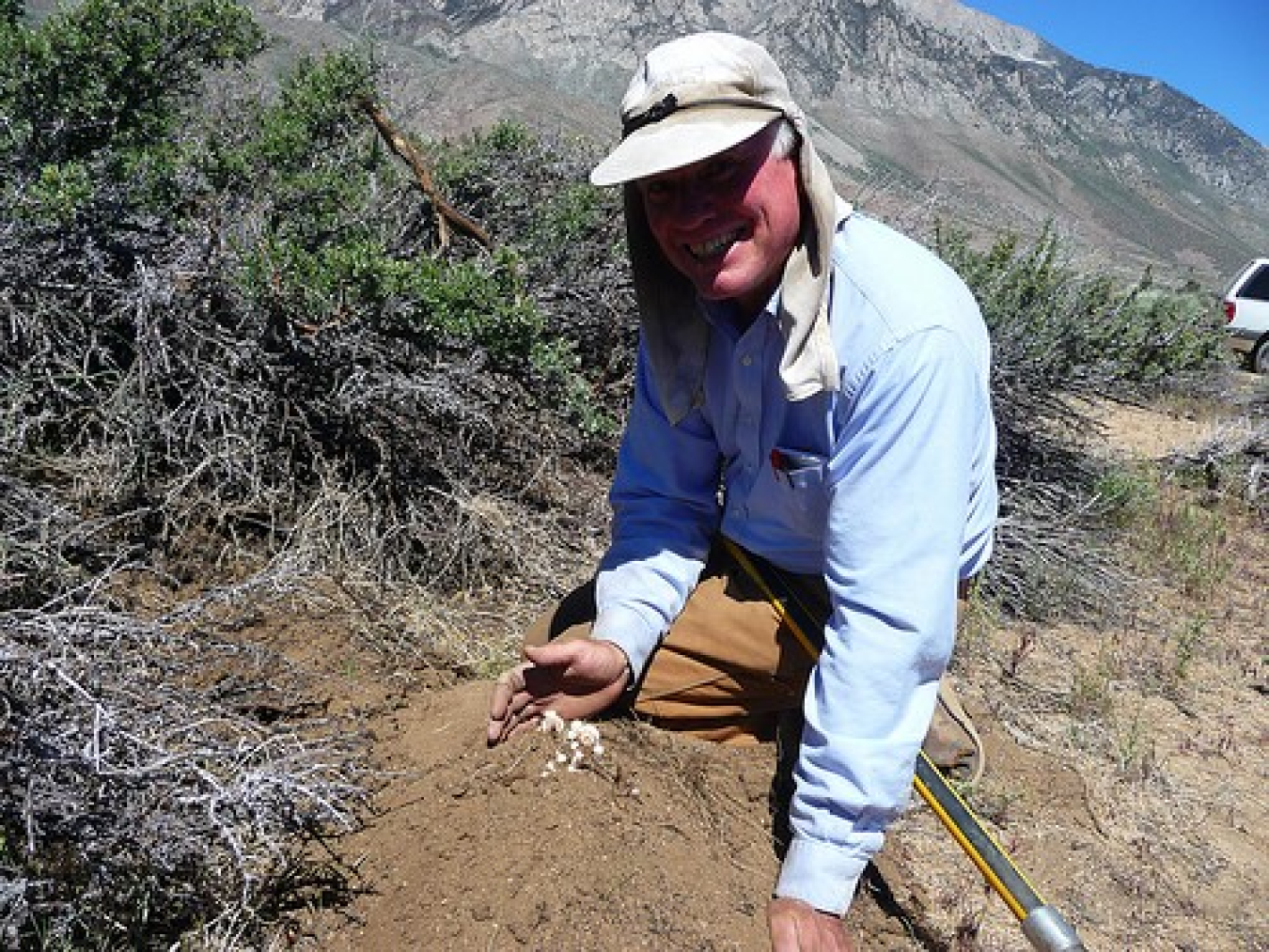
Photo courtesy of Natural Resources Conservation Service, U.S. Department of Agriculture.
The job of physical scientist technician is an entry-level position in bioenergy, in the agriculture, life, and physical sciences career sub-sector. Job seekers with agriculture, life, and physical sciences backgrounds or students studying science could consider this type of entry-level bioenergy job.
Physical scientist technicians work under the supervision of senior soil, water, and environmental scientists to help develop strategies and tools for producing biomass feedstocks while maintaining or enhancing soil quality and ecosystem services, as well as investigate opportunities for bioenergy crops to improve water quality. They also work under the supervision of senior level scientists to help improve applicable chemical processes, develop novel bioproducts, and ensure the end product meets quality specifications. People in these positions may hold internships or entry-level jobs in bioenergy physical science.
Physical Sciences Technician
| Alternate Title(s) | Chemist Trainee, Environmental Scientist Trainee, GIS Technician, Hydrologist Trainee, Hydrogeologist Trainee, Water Resource Specialist Trainee, Soil Science Technician, Soil Conservationist Trainee |
| Education & Training Level Description | Bachelor’s degree in the Physical or Natural Sciences, Engineering, or a related field. |
| Experience | 0–3 years |
| Job Skills |
|
| Job Profile | Bioenergy crop production systems involve complex interactions with the physical environment in which these crops are grown. Plants require water resources and nutrients present in the soil for growth. The expansion of biomass production will require individuals with a thorough understanding of agricultural management practices that are not only economical for producers and growers but also sustain important physical components of the environment such as soil and water. Physical scientists can provide this expertise, using their knowledge of the earth, its components, and its processes to guide important land management decisions. They are also uniquely qualified to work along many other components of the bioenergy supply chain, as their knowledge of the chemical sciences has important applications for the sector’s engineering and manufacturing activities. As such, there are a broad range of pathways that they can follow. Examples of bioenergy related careers in the physical sciences include: Chemical Scientists Hydrologists Soil Scientists Environmental Scientists At the entry level, Physical Sciences Technicians will work under the supervision of senior soil, water, and environmental scientists to help develop strategies and tools for producing biomass feedstocks while maintaining or enhancing soil quality and ecosystem services, as well as investigate opportunities for bioenergy crops to improve water quality. Individuals pursuing the chemical scientist route will also work under the supervision of senior level scientists to help improve applicable chemical processes, develop novel bioproducts, and ensure the end product meets quality specifications. A bachelor's degree in the physical or natural sciences, or engineering (e.g. chemistry, hydrology, environmental science, soil science or agricultural sciences). Equivalent experience or training may substitute for a bachelor’s degree. Employers also value relevant experience gained through undergraduate capstone research projects, part-time employment, internships, or volunteer work. |
More Entry-Level Agriculture, Life, and Physical Sciences Jobs in Bioenergy
Related Bioenergy Career Resources
Bioenergy Career Exploration Wheel

